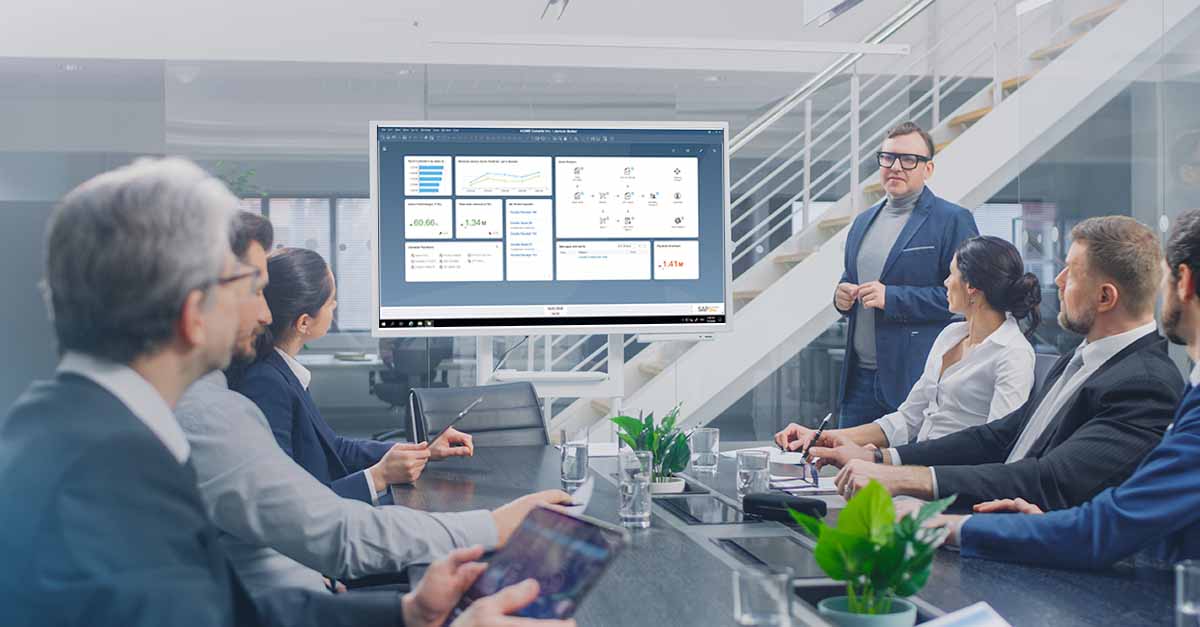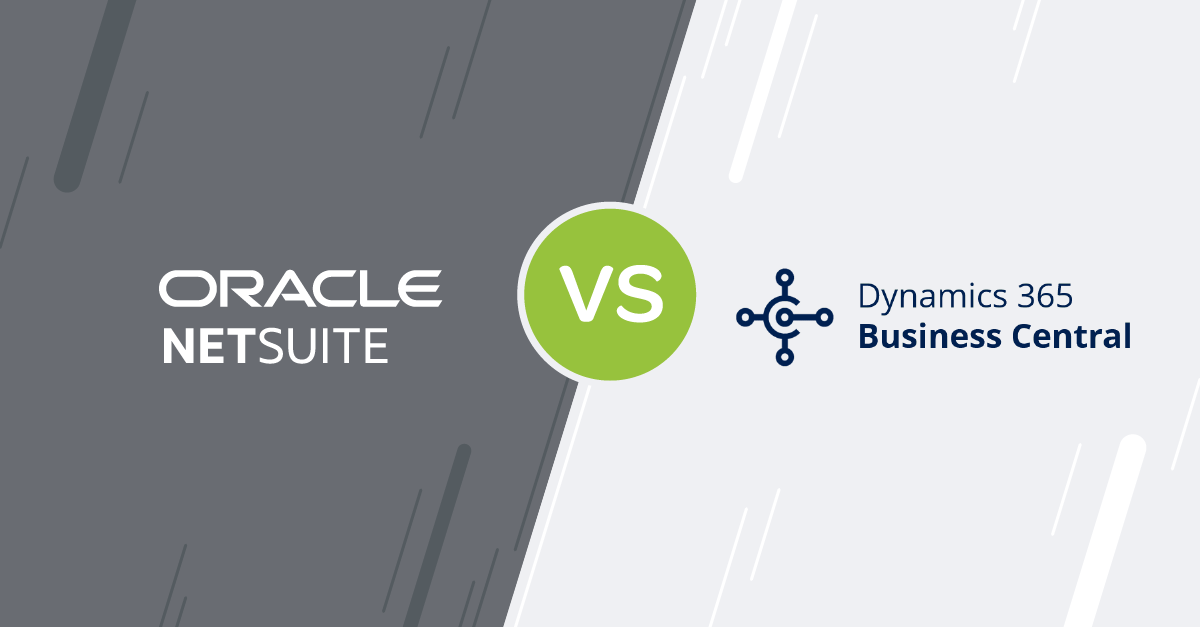Blog
Share this
How to Evaluate an ERP Demo – 7 Tips to Success for SMEs

by Jalene Ippolito on August 06, 2020
You’ve spent a lot of time doing the background work in your ERP evaluation – setting objectives, defining requirements and finding potential solutions. Now you’re in the home stretch – it’s time to see your top contenders in action! If you’ve been following along with our guide to evaluating ERP solutions, you’ll already understand the benefit of using a structured approach throughout this process. You’ll want to apply that same concept to your ERP demos to ensure you get what you need out of each one. The good news is that you’ve already done most of the preparation work, it’s just a matter of getting everyone on the same page before you dive in.
1. Gather the right people for the demo
As tough as it can be to schedule a group of people, you’ll want the same people attending every demo. This will provide consistency to your evaluation process and help you stick to your timelines. At a minimum, each member of your ERP project team should clear their calendar to attend the demos. It’s their responsibility to make sure the demos address your requirements. If your executive sponsors aren’t part of this team, be sure to add them to your attendee list so they can see the system and ask questions. And, depending on the size and structure of your organization, you may want to include key users from specific departments for the relevant parts of the demo. Just be sure the size of your group stays manageable – it’s easy to get off track when there’s too many people around the table.
2. Prioritize your business requirements
If you haven’t already identified your critical success factors, now is the time to do so. This is your ranking of essential requirements for the project to be considered a success – it’s tied directly to your ERP project objectives. Without your prioritized list, it’s difficult to evaluate how well each ERP solution can meet your requirements. So, if you haven’t set your objectives or prioritized your requirements yet – stop and do that before scheduling any demos.
Having a clear picture of your current challenges and needs will help steer the conversation with implementation partners. But you can expect each partner to have their own process that will help you fine tune your requirements. This is one of the first signs of a strong ERP partner – they use a proven approach to understand your needs and recommend the best solution.
3. Use a solution evaluation scale
To get the most value out the demos, you need the ability to capture both quantitative and qualitative feedback from your team. A rating scale like the one below allows you to evaluate each functional point in a methodical way so that everyone on your team is using a standardized approach.
0 = Not available
1 = Major workaround / custom development
2 = Third-party solution
3 = Minor workaround
4 = Available in current year
5 = Included in current release and cost estimate
This helps you evaluate the features and functionality. From a qualitative perspective, you’ll want to capture people’s feedback on ease of use, process fit and system flexibility. You can create a simple scorecard and distribute it to your team before the demo so they can fill in the blanks. Using the same scorecard for each demo will make it easier to analyze the results and compare solutions.
4. Prepare your team
Before you start demos, provide your team with a package that includes your project objectives, your prioritized list of business requirements and your demo scorecard. They should reference back to these documents for each demo to ensure the information is fresh in their minds. Before each demo, share basic background information on the implementation partner and vendor that you’ll be evaluating. This will give them a feel for who the partner is and provide context going into the demo.
Designate someone on your project team to share the information, collect feedback from each demo and facilitate the follow-up discussions internally. In most cases this will be your project champion, but you could assign another member of your team if you prefer. And reinforce with your team that good note taking is essential – your demos could take place over several weeks, so you want to have good notes to refer to.
5. Communicate expectations with the ERP partners
A successful demo is largely dependent on having clear understanding between you and the ERP partner doing the demo (or vendor if you’re working directly with them). Be clear on what your requirements and objectives are. In our business, we have a sign-off point after our discovery stage to ensure we fully understand the requirements. If the partner hasn’t built this into their process, make sure you communicate the information again and have them indicate their understanding. This will create the basis for the demo script, so it’s important to agree. If you have any perceived functionality gaps, communicate them before the demo. The partner should provide clarification during the demo to alleviate any concerns.
6. Focus on your ERP objectives
Remember that list of ERP objectives we talked about earlier? Keep that handy during the demos. You should walk away from each one with an understanding of how you’ll achieve your objectives. A good partner will create a script that not only demonstrates how their ERP system meets your top requirements, but most importantly, illustrates how it solves your biggest challenges. Two things to watch for in your demos that will make the great partners stand out:
- They should be using demo data that’s relevant to your business. This helps paint the picture of how the system will work for you and your processes.
- They should go beyond just addressing your requirements and illustrate how the gaps in your current processes will be filled, how existing processes can be improved and how new capabilities will impact your business.
7. Evaluate the partner as well as the solution
The results you see from your ERP solution will be somewhat dependent on the implementation partner you choose. The right ERP partner will be mutually invested in your success. To the points above, they won’t just show you the features you want to see and call it a day in the demo. They’ll show you the impact and demonstrate their understanding of your business. That’s a good indicator of what they’ll be like to work with long-term. Encourage your team to provide feedback on the partner both in the demo and throughout the evaluation. Think about the culture fit between your company and theirs. You’re signing on for a long-term partnership, so relationship is important and shouldn’t be overlooked.
Final tips for a successful ERP demo
- Limit your demos to two or three providers. If you have any more than that, you’ll muddy the waters and have a hard time distinguishing between solutions.
- Leave time at the end of each demo for extra questions. If a question comes out of your discussion that wasn’t covered in your initial requirements list, don’t be afraid to ask for a follow-up session.
- If possible, do your demos on-site. If your team is spread out geographically, a virtual demo might be required. But don’t underestimate the impact of sitting in a room together. The in-person interaction goes a long way to establishing the relationship and facilitates discussion in a way that you can’t always replicate on a video call.
As one of the top Canadian ERP partners, we've helped many other Canadian companies streamline operations and fuel growth. We're here to guide you through the process – right from evaluation, through implementation and beyond.
Share this
Stay in the Know!
Join other SMEs who receive our monthly ERP insights, tips and best practices.
You may also like

ERP Funding for Canadian Businesses

Should You Work with a NetSuite Implementation Partner or Go Direct?



